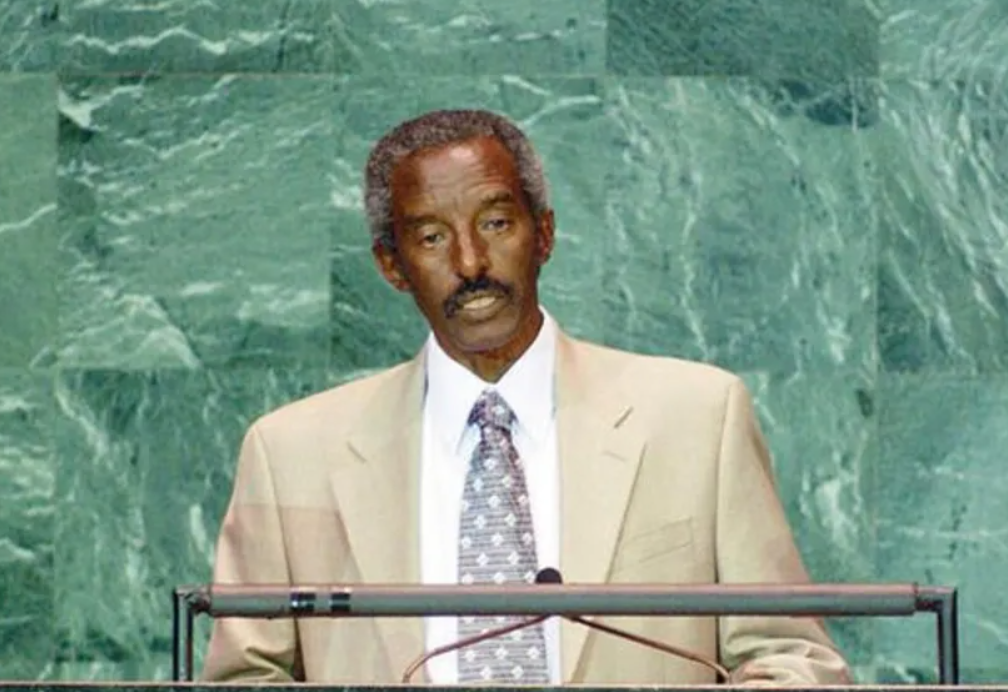The death occurred in prison of Berhane Abrehe, a well-known ex-finance minister of Eritrea and a vocal opponent of President Isaias Afwerki. Not only was Abrehe the longest-serving finance minister of Eritrea at 79 years old, but he was also an outspoken critic of the ruling party. Because Eritrea’s political and legal systems are so murky, his death has caused a great deal of anxiety and discussion.
A Remarkable Career and a Contentious Termination
While serving as finance minister of Eritrea, Abrehe started off on the right foot and finished in the middle of controversy. He was instrumental in developing Eritrea’s economic policy after being appointed minister of finance. On the other hand, tensions with President Isaias Afwerki became more pronounced during his term in office. The demands for more financial transparency and responsibility made by Abrehe were the primary spark that ignited the controversy. His tumultuous relationship with the regime began in 2012, when his dismissal from office was the result of these differences.
“My Country” and Its Publication and Subsequent Imprisonment
As a result of his firing, Abrehe spoke out more strongly against the government. He slammed President Afwerki, called him a “dictator,” and demanded his resignation in his 2015 two-volume book My Country. In addition to denouncing the president’s leadership, the book demanded that Eritrea’s National Assembly be reinstated and challenged him to a public discussion. There is now no official legislative body to supervise government operations as this Assembly was dissolved in 2002 and has not been recreated.
In 2018, Abrehe was detained due to the release of My Country. The regime’s stringent control over information meant that his imprisonment mostly went unrecognized within Eritrea, despite strong international outrage. There was no apparent explanation for his incarceration, and his loved ones had no idea where he was or how he was doing.
Enigmatical Factors Contributing to His Demise
Eritrean officials have formally verified Abrehe’s death in prison, although information about his death are few. No details regarding the circumstances surrounding the death or its cause have been disclosed by the government. Those who served their country and helped secure Eritrea’s independence may be laid to rest at the Asmara Patriots Cemetery, where he is reportedly interred.
Human Rights Concerns and the Political Climate in Eritrea
Since Eritrea gained its independence from Ethiopia in 1991, President Isaias Afwerki has presided over the country without conducting any kind of national elections. All political parties, independent media, and civic organizations were outright outlawed throughout his leadership, and the political climate remained very restrictive. Torture, disappearances without trace, and the cruel incarceration of thousands are just a few of the serious human rights crimes that the Eritrean government has been accused of committing.
The larger problems with Eritrea’s political system are brought to light by Abrehe’s decline from favor. The severe repercussions he faced for advocating accountability and transparency were indicative of a larger trend of silencing dissent. The government’s intolerance for opposition is highlighted by the regime’s reaction to criticism, which was Abrehe’s imprisonment and death.
The Tragic Situation of Political Detainees
The larger problem of political persecution in Eritrea is symbolized by Abrehe’s experience. Many political prisoners in the nation endure inhumane treatment, including torture and arbitrary incarceration. Particularly unsolved is the case involving the 2001 arrest of the “G-15,” a group of high-ranking officials who had spoken out against the president. Since their imprisonment, these individuals—including previous ministers and military leaders—have remained missing.
A Global Reaction to Persistent Human Rights Concerns
Human rights groups and the UN have been quite critical of Eritrea’s administration on multiple occasions. Human rights abuses in Eritrea continue with complete lack of punishment, as brought to light in February by Ilze Brands-Kehris, the UN Assistant Secretary General for Human Rights. Consistent reports of abuses such as torture and arbitrary incarceration highlight the seriousness of the country’s human rights crisis.
In summary
The assassination of Berhane Abrehe is a watershed event in Eritreaan history because it exposed the oppressive political atmosphere of the country. Despite the unfortunate circumstances of his passing, his impact on Eritrea’s economic policies and his brave resistance to dictatorship will live on in memory. The narrative of Abrehe is a powerful call to action for accountability and change in Eritrea, where the fight for human rights and democratic reform is far from over.



















